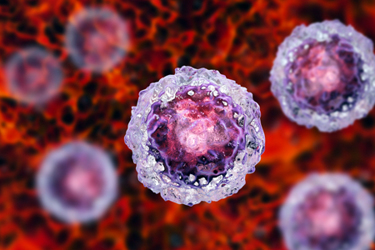Considerations In Commercializing HSC Gene Therapies For Rare Disease
By Braden Parker, chief commercial officer, Orchard Therapeutics

The transformative potential of gene therapy is bringing renewed hope to the rare disease community, but with scientific progress comes the need for innovation and creativity in making new treatment paradigms a reality. Our global healthcare system is at an inflection point; the chronic care model that has been the foundation of disease management and treatment for so long is being upturned in the advent of potentially curative, one-time therapies. As a result, patients, industry, policymakers, payers, and other stakeholders need to coalesce around critical issues that will make identifying, treating, and supporting patients possible. Below, I’ve shared a few areas the team at Orchard is focused on as we work to build a commercial infrastructure that can realize the full potential of Hematopoeitic Stem Cell (HSC) gene therapy.
Finding Patients Early Enough to Make a Difference
Thanks to recent medical advances, many rare but devastating or fatal disorders may soon have potentially curative therapeutic options. Early diagnosis is especially important for conditions that are rapidly degenerative to evaluate potential interventions. With a wave of potentially transformative therapies approaching commercialization, ensuring equitable and timely newborn screening and diagnostic testing is critical.
In the short-term, Orchard is focusing on greater disease education and physician awareness of these rare but fatal conditions. Importantly, we are supporting newborn screening pilots in the U.S. and across Europe to gather the data necessary for inclusion on national and local newborn screening panels. We know the work won’t stop there—we will continue to pursue innovations in diagnostics and work alongside the global advocacy community to advocate for equitable newborn screening for rare diseases where early intervention may prevent unnecessary morbidity or mortality.
Navigating the Evolving Landscape
Centers of Excellence
An important step in ensuring access to approved gene therapies is establishing qualified treatment centers. Recognizing that the administration of these gene therapies requires unique expertise, the process to identify, train and certify these centers is robust. Orchard has undertaken a rigorous process in identifying potential treatment centers that offer expertise in certain diseases, support for patients and their families through the journey, history of successful cross-border access for patients, and excellence in distribution and logistics. Currently, Orchard is working toward the qualification of five treatment centers in Europe. Recognizing that the number of treatment centers will be limited, excellence in facilitating cross-border healthcare will be critical to ensuring the treatment of eligible children.
Reimbursement Models
Another opportunity to ensure that single-administration gene therapies are commercially available for patients is re-thinking how we facilitate access and payment for these potentially life-changing therapies for children with severe and rare genetic disease. In a society that is accustomed to chronic care management, single-administration therapies with curative potential offer innovation that is at odds with global reimbursement paradigms. Recent movement toward a variety of value-based payment models offers a great deal of promise in constructing pathways to ensure patients have access to therapy within the therapeutic window. At Orchard, we believe in working collaboratively with payers to determine payment models that share both the risk and value of innovation.
Building a Strong Commercial Infrastructure
While we have initially focused on rare, genetic diseases, we see potential to apply the HSC gene therapy model to other genetic conditions with larger patient populations. With this in mind, we are committed to making a lasting difference for patients and families facing a variety of devastating diseases. Genome sequencing and genetic association studies have made great strides in understanding the genetic cause of a disease—this coupled with Orchard’s foundational proof of concept work in rare diseases has led us to undertake investigational research programs in larger indications that have a strong genetic cause, such as the NOD2 form of Crohn’s and the GRN form of frontotemporal dementia.
At Orchard, our commercial strategy has always been based on addressing multiple, difficult-to-treat genetic diseases by leveraging the power of the HSC gene therapy approach. Now, we are beginning to see that plan come to fruition. With clinical data from over 160 patients treated across seven diseases and more than a decade of follow-up data in the earliest treated patients, we have one of the deepest and most extensive pipelines of investigational gene therapies in the field — several of which are in the late stages of development.
Over the next few years, we hope to bring therapies to approval and commercialization and, in doing so, continue to build a strong commercial infrastructure that can be leveraged both now and in the future.
These are exciting times at Orchard. We’re inspired by the power of HSC gene therapy to offer a potentially curative therapy for a variety of devastating genetic diseases. We know that, taken together, all the innovative advancements we’re currently making, along with those still on the horizon, will allow us to make a lasting difference.
